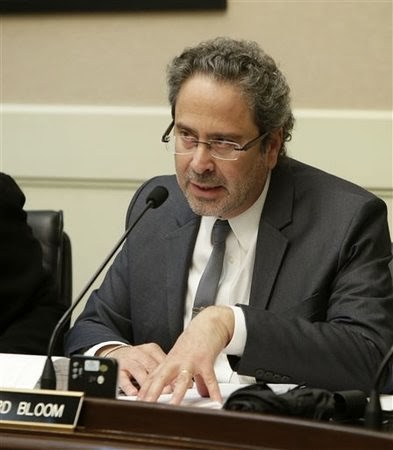"Free" Money for Voters
Richmond Democrats vote to take money from business owners and to give away the "free cash" to voters in the form of an $12.30 an hour minimum wage.
As usual the Marxists give no thought to job creation. What new business would deliberately locate in Richmond? and how many existing businesses will move to Nevada, Texas or Mexico?
The People's Republic of California - When you rob Peter to pay Paul you will always get Paul's vote.
The Democrat run Richmond City Council gave initial approval to the ordinance in a 6-1 vote this week; it is scheduled to formally adopt it next month. If adopted, it's believed Richmond would become only the third city in the state to establish its own minimum wage, after San Francisco and San Jose, raising fears among some local business leaders that businesses may leave or avoid the city and quell hiring.
The ordinance would gradually raise the minimum wage in the city to
$12.30 an hour by 2017. Any business with 10 or fewer employees would be exempt from the minimum wage requirements, though that was not enough to quell the objections of business leaders who warn
the city could lose local jobs.
Tuesday's vote came after Mayor Gayle McLaughlin, the foremost proponent of the plan, opted to rescind a previous directive to put a proposed increase on the November ballot
reports the Contra Costa Times.
"It's clear we want a minimum-wage increase, so
why not sooner rather than later?" McLaughlin said. "Why wait until November? It's a phased-in approach."
Richmond's attempt to pass a tax on sugar-sweetened beverages was trounced by voters in 2012, in large part because of concerns about the impact on local businesses and millions in anti-tax campaign spending funneled by beverage industry heavyweights.
The council considered three proposals Tuesday, for $11, $12.30 or $15 per hour.
The ordinance includes a provision that would peg the minimum wage to the Consumer Price Index for the Bay Area each Jan. 1, beginning in 2018.
The ordinance sets a transition period beginning with the effective date of the ordinance, usually 30 days after passage, and ending Dec. 31, during which the minimum wage would be $9. The wage would rise to $9.60 in 2015, and to $11.52 in 2016.
With its new minimum wage, a significant increase over the current state rate of $8 per hour, Richmond is taking a firm stand in a national debate over whether higher minimums help low-wage workers by giving them more money, or hurt them because businesses can't afford to hire as many workers.
Other Bay Area cities are doing the same: San Francisco's $10.74 minimum wage is the region's highest; San Jose's rate is $10.15. Berkeley and Oakland are also mulling possible minimum wage increases, and President Obama has urged raising the minimum wage nationally -- it is currently $7.25 -- but Republicans in Congress are opposed.
Ken Jacobs, chairman of the UC Berkeley Labor Center and co-editor of the book "When mandates work: Raising labor standards at the local level," said Richmond is set to become the 10th city or county in the nation to pass a higher minimum wage.

"At this point,
$12.30 would put Richmond at the highest in the nation, but it is quite likely that by 2017 other cities will have set higher rates," Jacobs said.
Paul Levitan, CEO of Galaxy Desserts, said the increase would make it difficult for his 100-plus employee business to add jobs, and cautioned that the $15 option would force him to look to move his company elsewhere.
"If there is too great a difference between wages here and those of our competitors,
we won't be able to compete and add jobs," Levitan said.
Asked whether the $12.30 level would affect his business, Levitan said the company may look to automate certain functions and be dissuaded from expanding its work force.
Sergio Rios, vice president of the 23rd Street Merchants Association and a small-business owner, said small businesses in Richmond will have a strong incentive to stay under 10 employees to avoid triggering the wage hike.
"I'm not necessarily against the increase, but the consequences will be real," Rios said. "A business may look to contract to under 10 employees or not expand to more than 10 in order to save money."
Eighteen percent of the city's 105,000 residents live below the poverty line, according to a staff report.


















































